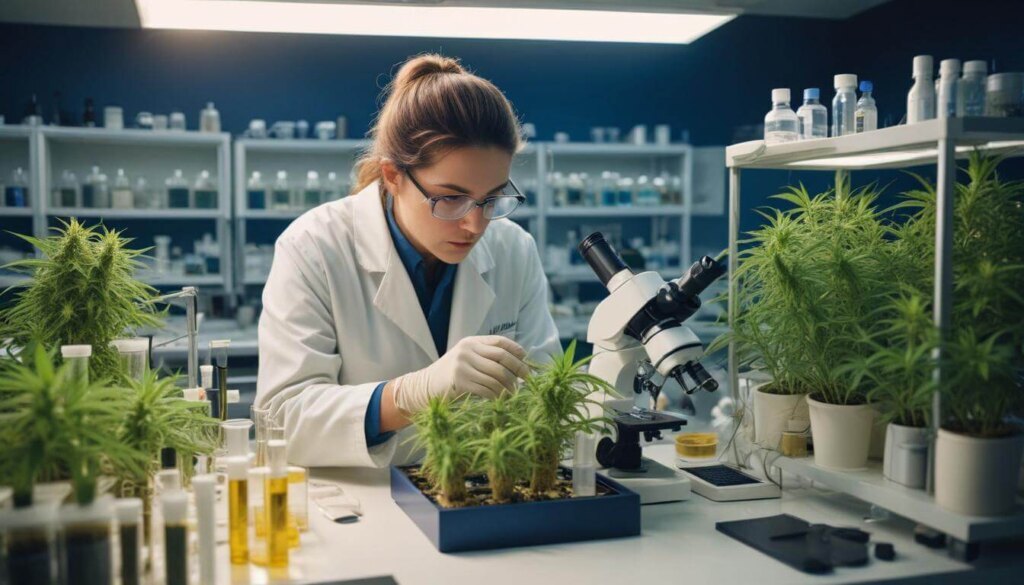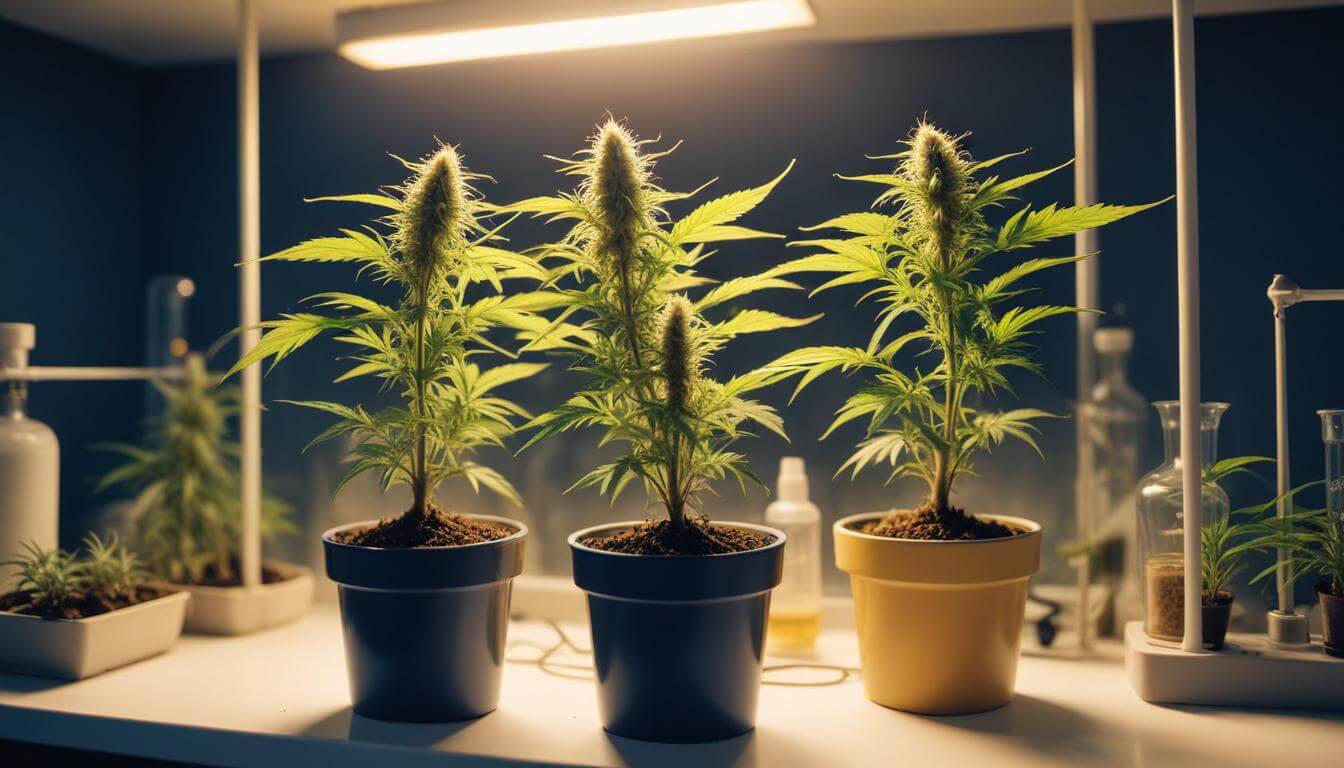A hard hitter meets a peaceful breeze. That’s how many describe THCP and delta-8 THC. But what’s the truth? Thanks to their status as novel THC cannabinoids, when comparing THCP vs. Delta-8 THC, it’s often best to include the most notorious THC cannabinoid, delta-9 THC — which is the main cannabinoid behind marijuana’s high. By doing this we can better understand both the small and large differences between THCP and delta-8, which includes their safety and legal status.
THCP vs Delta 8: Definitions
THCP – The Powerhouse?
A rather potent cannabinoid, the Δ9 isomer THCP was first isolated naturally from cannabis sativa plants in 2019 — having been a synthetic homologous of THC cannabinoids up until that point. As you’ll see with all THC analogs, they all have a similar molecular structure to delta-9, however, where the difference occurs varies. This potentially gives all these THC cannabinoids the ability to interact with the body in different ways — usually, it’s very minute (effects largely stay the same, there is just an increase in their intensity).
Thanks to THCP’s pentyl side chain extending to its heptyl, it has a longer side chain than delta-9. This may give THCP stronger effects than delta-9 THC, thanks to having up to 33 times the binding affinity at CB1 receptors. This is why some claim THCP is the strongest cannabinoid. Don’t let that 33 times trick you, however, as by most accounts, THCP’s effects are only mildly stronger than delta-9 at best.
Delta-8 THC – The Gentle Giant?
With its double bond on the 8th carbon vs. the 9th chain, many find that delta-8 THC’s effects tend to sit comfortably between delta-9 THC and CBD. Now, unlike CBD, delta-8 THC is psychotropic, i.e., it can make you feel high due to its agonist effects on CB1 receptors.
You might be wondering why, despite this article being a showdown between THCP and delta-8, I’m comparing these cannabinoids to others like CBD. Well, that’s because we are looking at both the effects and structures based on commercially available products. If we simply look at the theorized or synthetic cannabinoid structures, we open a bit of a can of worms. Because, while the main THCP cannabinoid we are looking at is the delta-9 version, it’s important to know a delta-8 THCP version may naturally exist too. However, only a synthetic version, code named JWH-091, has been seen.
THCP vs Delta 8: Comparing Potency and Efficacy
Both THCP and delta-8 THC have the ability to bind to cannabinoid 1 receptors. By agonistically binding to these receptors in different ways than our self-created cannabinoids can, intense feelings of euphoria, relaxation, and creativity can be unlocked, producing responses in a way that’s not usually naturally felt. In stoner terms, that means they make you feel high! However, the degree can be quite stark, especially, if you’re inexperienced with psychotropic cannabinoids.
By most accounts and based on limited research, when taken in similar doses, THCP — the Δ9 isomer version — is going to result in a much stronger high than delta-8 THC. Moving to our more anecdotal reports, many find delta-8’s high to be very mild compared to delta-9 THC. This makes it a potentially good candidate for those who need a little more from their CBD medication and don’t mind a mild high. You may or may not find THCP to be any stronger than delta-9 — you are less likely to find it weaker, but that may not always be the case.
THCP vs Delta 8: Safety Profile and Side Effects
It’s important to remember with all cannabinoid-based products that everything from individual tolerance levels to how the products are manufactured will influence their effects, benefits, and side effects. Due to their difference in their molecular structure, the side effect profile of THCP and delta-8 THC may not always overlap — especially when comparing the degree to which said side effects are felt, i.e., THCP’s side effects likely tend to be more pronounced. However, most reports on both cannabinoids tend to mention anxiety, sedation, and dry mouth/eyes. Not too surprising, as these are delta-9’s main side effects.

THCP vs Delta 8: Legal Status and Market Availability
In the United States, both THCP and delta-8 THC live in a legal grey area. While they are currently technically legal on a federal level thanks to the 2018 Farm Bill, declared legal the products made from hemp and containing cannabinoids with less than 0,3% Delta-9 THC. But things can change quickly. Especially with the potential rescheduling of cannabis to Schedule III under the Controlled Substances Act.
Regardless of their federal status, it’s important to familiarize yourself with your state laws regarding any cannabinoid you plan to use. While the majority will likely find THCP products to produce a more intense high, its currently less popular status has allowed it to slip under the radar, unlike delta-8, which has seen pushback from some states.
Consumer Considerations: Choosing Between THCP and Delta 8
The best way to compare THCP and delta-8 products is by comparing them to CBD and delta-9 THC items, as they are way more common. While your most experienced marijuana user may have no familiarity with our novel THC cannabinoids, it’s much more likely they’ve tried CBD. I know; all these cannabinoids can make things confusing, so I’ll refrain from the Wizard of Oz joke…oh my.
If you have never tried marijuana before or a cannabis item loaded with delta-9 THC, I recommend staying away from THCP until. In fact, I would recommend trying CBD first before trying delta-8. Delta-8’s ability to produce a milder high and side effects than delta-9 makes it a good candidate to try out first. However, due to its rare occurrence in cannabis, like THCP, products rich in them feature semi-synthetic versions that were produced by modifying more commonly occurring cannabinoids like CBD. Due to the lack of regulation in the cannabis world, I’m personally not the biggest fan of semi-synthetic cannabinoids — I have no issue with their concept. All-in-all, as always, I encourage you to thoroughly research any cannabis item before using it and to reach out to a health expert if you have concerns about the item.






Great breakdown of THCP and Delta 8! I am looking forward to more research on both.